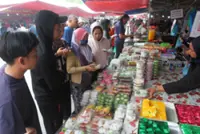KOTA KINABALU: Sabah’s native court system, which predates formal governance and has long served both Muslim and non- Muslim communities, requires reforms to ensure its continued relevance and effectiveness, says Datuk Seri Dr Joachim Gunsalam (pic).
The Deputy Chief Minister highlighted the crucial role that native courts play in administering customary laws among indigenous communities, operating alongside other legal frameworks.





